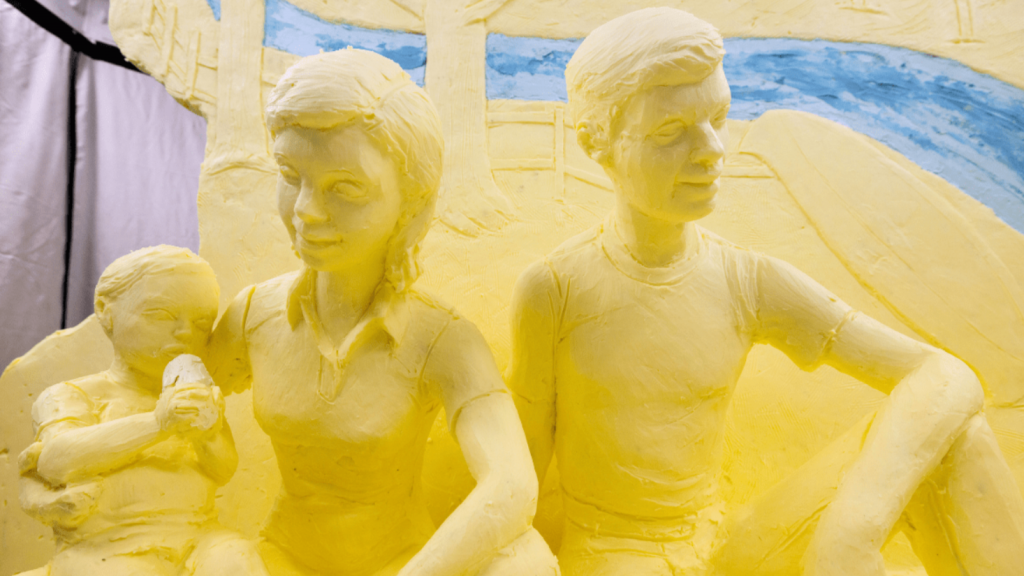800-pound butter sculpture to be recycled into usable energy
Noblehurst Farms will combine the butter with other food waste and run it through the farm's digester

It was a sculpture called, "Dairy: Good for you. Good for the planet," of a family relaxing on the bank of a river watching a dairy farmer plant a tree. Now, the 800 pounds of butter it was sculpted from is off to be recycled into usable energy.
The 56th Annual Butter Sculpture at the New York State Fair has been dismantled by the American Dairy Association North East, in conjunction with Cornell Cooperative Extension Master Gardeners and Noblehurst Farms, and, the butter — which was unsuitable for sale or consumption for a variety of reasons — will return to Western New York, less than 15 miles away from where it was originally produced, to be recycled at a local dairy farm.
Noblehurst Farms in Livingston County will combine the butter with other food waste from local food manufacturers and educational institutions and run it through the farm's digester, converting it into energy. The digester breaks down the material and creates enough electricity to power the farm, the farm's on-site creamery, and about 350 homes for a year. Specifically, the butter from the butter sculpture alone will be able to power one house for three days.
"We are honoured to be recycling the New York State Fair Butter Sculpture for the ninth consecutive year," said Jack Klapper, co-owner of Noblehurst Farms. "We will mix the butter with other food waste and convert it to energy over the course of about 28 days. That energy will be turned into electricity which will power homes in the local community."
In recent years, Noblehurst Farms has been recognized nationally for achievements in sustainability and community partnerships to divert food waste from local landfills. The result of Noblehurst's efforts has led to diverting 200 tons of food waste from local landfills on a weekly basis.
"Our awareness of the role that dairy farmers are playing in addressing the global food waste problem has definitely heightened," said Klapper. "We are hopeful that our innovative food waste reduction practices will bring additional value as New York State focuses on reducing methane and sequestering carbon in the coming years."


